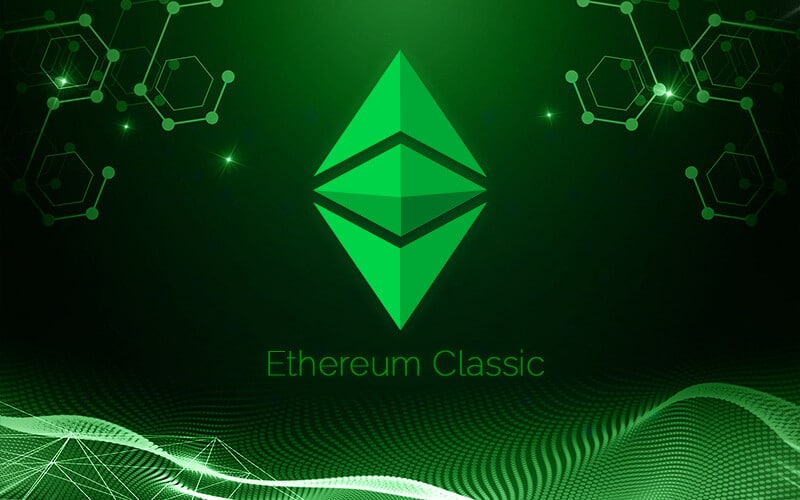Top Platforms to Buy and Sell Ethereum Classic (ETC) Securely
Ethereum Classic (ETC) has been a notable cryptocurrency since its split from Ethereum in 2016, following a controversial hack. Whether you’re a seasoned trader or a crypto beginner, selecting the right platform for trading ETC is crucial for secure and profitable transactions. In this article, we’ll explore the top platforms for trading Ethereum Classic, factors to consider when choosing an exchange, and key insights into ETC’s role in the crypto market.
Why Choosing the Right Exchange Matters
The exchange you select significantly impacts your trading experience, ensuring secure transactions, low fees, and useful trading tools. Below, we break down the leading platforms for trading Ethereum Classic and what makes them stand out.
Top Platforms for Trading Ethereum Classic (ETC)
1. Kraken
- Features:
- High security with cold storage and two-factor authentication (2FA).
- Low trading fees and high liquidity.
- Multiple trading pairs, including ETC/USD and ETC/BTC.
- Pros: User-friendly for beginners and experienced traders.
- Launch Year: 2011
- Supported Cryptocurrencies: 200+
2. Bitget
- Features:
- Futures trading and copy trading for beginners.
- Competitive fees and high liquidity.
- Educational tools for traders of all levels.
- Pros: Ideal for advanced traders looking to leverage positions.
- Launch Year: 2018
- Supported Cryptocurrencies: 550+
3. MEXC
- Features:
- Advanced charting tools for technical analysis.
- High liquidity with low fees.
- Supports over 2,000 altcoins, making it ideal for diversifying.
- Pros: A haven for altcoin enthusiasts.
- Launch Year: 2018
4. Binance
- Features:
- Spot, margin, and futures trading options.
- Extremely low trading fees and high liquidity.
- Accessible globally with robust security measures.
- Pros: One of the most popular and reliable exchanges worldwide.
- Launch Year: 2017
- Supported Cryptocurrencies: 600+
Key Factors to Consider When Choosing an Exchange
- Payment Methods: Ensure your preferred deposit method, like credit cards or bank transfers, is supported.
- Security Features: Look for encryption, 2FA, and insurance against hacks.
- Fee Structure: Low trading and withdrawal fees maximize your profits.
- Liquidity: High liquidity ensures faster trades and better prices.
- Customer Support: Responsive support helps resolve issues quickly.
- Ease of Use: Choose a platform with a simple, user-friendly interface.
- Reputation: Read reviews to ensure the platform is trustworthy.
Understanding Ethereum Classic (ETC)
What Is Ethereum Classic?
Ethereum Classic is the original Ethereum blockchain that emerged after the 2016 DAO hack. It focuses on immutability and supports decentralized applications (dApps) and smart contracts.
A Brief History
After the hack, the Ethereum network split, creating Ethereum (ETH) and Ethereum Classic (ETC). Ethereum Classic remained loyal to the original blockchain rules, appealing to decentralization advocates.
ETC’s Role in the Crypto Market
ETC remains a decentralized alternative, attracting investors and developers due to its commitment to immutability. It continues to gain traction through upgrades and partnerships.
Types of Trading Platforms for Ethereum Classic
- Over-the-Counter (OTC) Exchanges: Great for large, private trades.
- Fiat-to-Crypto Exchanges: Ideal for beginners using fiat currencies like USD or EUR.
- Privacy-Focused Exchanges: Prioritize anonymity but may lack regulation.
- Algorithmic Trading Platforms: Use automated strategies, best for experienced traders.
- Security Token Exchanges: Regulated platforms for trading digital assets securely.
How to Start Trading Ethereum Classic
- Select a Platform: Research and compare exchanges.
- Register: Complete the signup and verification process.
- Secure Your Account: Enable 2FA for extra protection.
- Fund Your Wallet: Deposit funds using your preferred method.
- Choose Trading Pairs: Common pairs include ETC/USD, and ETC/BTC.
- Place Orders: Use market or limit orders for trades.
- Monitor Trades: Track your performance and adjust strategies.
- Withdraw Safely: Transfer your ETC to a secure wallet.
How to Handle Trading Fees
- Maker & Taker Fees: Understand the difference to optimize your trades.
- Withdrawal Fees: Check the costs based on the exchange and network.
- Cross-Border Fees: Factor in extra charges for international fiat-to-crypto transactions.
Other Altcoins to Explore
Diversifying your portfolio is always wise. Here are some notable alternatives:
- Ethereum (ETH): Leading dApp platform.
- Bitcoin Cash (BCH): Focuses on fast, low-cost transactions.
- Litecoin (LTC): Offers quick transaction settlements.
- Zcash (ZEC): Prioritizes transaction privacy.
- Dash (DASH): Known for speed and low fees.
Cheap Remote Crypto Mining for you – Click Here
FAQs About Trading Ethereum Classic
- How Can I Secure My ETC Holdings?
Use strong passwords, enable 2FA and store assets in hardware wallets. - What Risks Should I Consider?
Market volatility, liquidity issues, and security risks are major concerns. - How Is ETC Different from ETH?
ETC sticks to its original blockchain, focusing on immutability, unlike ETH. - Can I Trade ETC Anonymously?
Some exchanges allow this, but most require KYC compliance. - Where Can I Find ETC News?
Follow crypto news outlets, forums, and social media for updates.
Conclusion
Ethereum Classic’s decentralized and immutable nature makes it a compelling choice for traders and investors. Selecting the right platform with robust security, reasonable fees, and user-friendly features is crucial for a successful trading experience.
With careful research and a strategic approach, Ethereum Classic can be a valuable addition to your cryptocurrency portfolio. Stay informed, trade wisely, and explore the potential of ETC in the dynamic world of digital assets.


